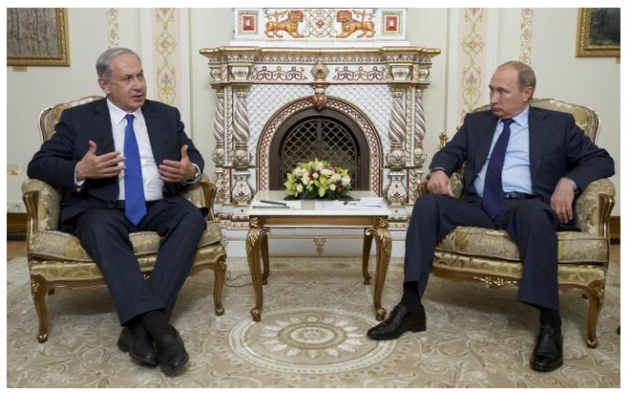
Israeli prime minister Benjamin Netanyahu and Russian president Vladimir Putin have agreed on a plan to avoid “misunderstandings” in Syria amid an apparent military build-up by Moscow to support president Bashar al-Assad.
The two leaders reached an agreement on Monday during talks in Russia, with Israeli media reporting that the discussions involved avoiding clashes between the two militaries’ jets over Syria.
“The conversation revolved, first of all, on the issue that I raised regarding Syria, which is very important to the security of Israel,” Netanyahu said after the meeting, according to a statement from his office.
“The conversation was substantive. A joint mechanism for preventing misunderstandings between our forces was also agreed to.”
Israeli military officials reportedly fear that any Russian air presence could cut their room for manoeuvre after several purported strikes on Iranian arms transfers to Hezbollah through Syria in recent months that were not officially acknowledged by Israeli authorities.
Israel opposes Assad’s regime but has sought to avoid being dragged into the conflict in neighbouring Syria.
It also fears that Iran could increase its support for Hezbollah and other militant groups as international sanctions are gradually lifted under a July nuclear deal that Moscow helped negotiate between Tehran and world powers.
Before his talks with Putin, Netanyahu said he was determined to stop arms deliveries to Lebanon’s Shiite Hezbollah movement and accused Syria’s army and Iran of trying to create a “second front” against Israel.
Putin said Russia’s actions in the Middle East “always were and will be very responsible” and downplayed the threat by Syrian forces to Israel.
The United States says Russia—one of the few remaining allies of Assad—is deploying personnel and military hardware to Syria, sparking fears Moscow is preparing to fight alongside government forces.
Russia contends any such support falls in line with existing defence contracts.



